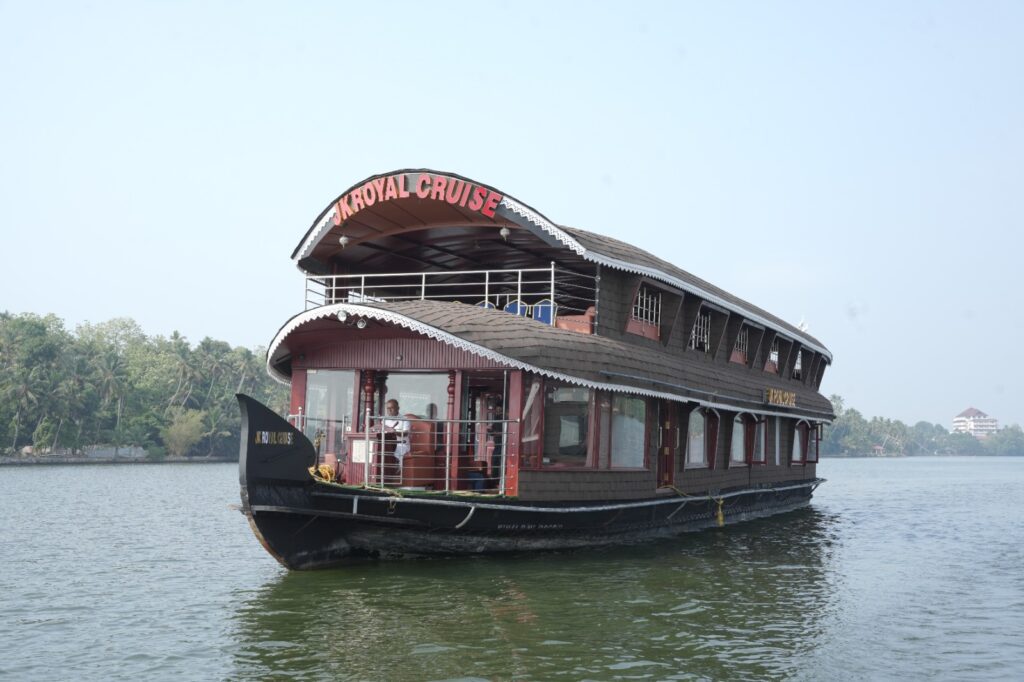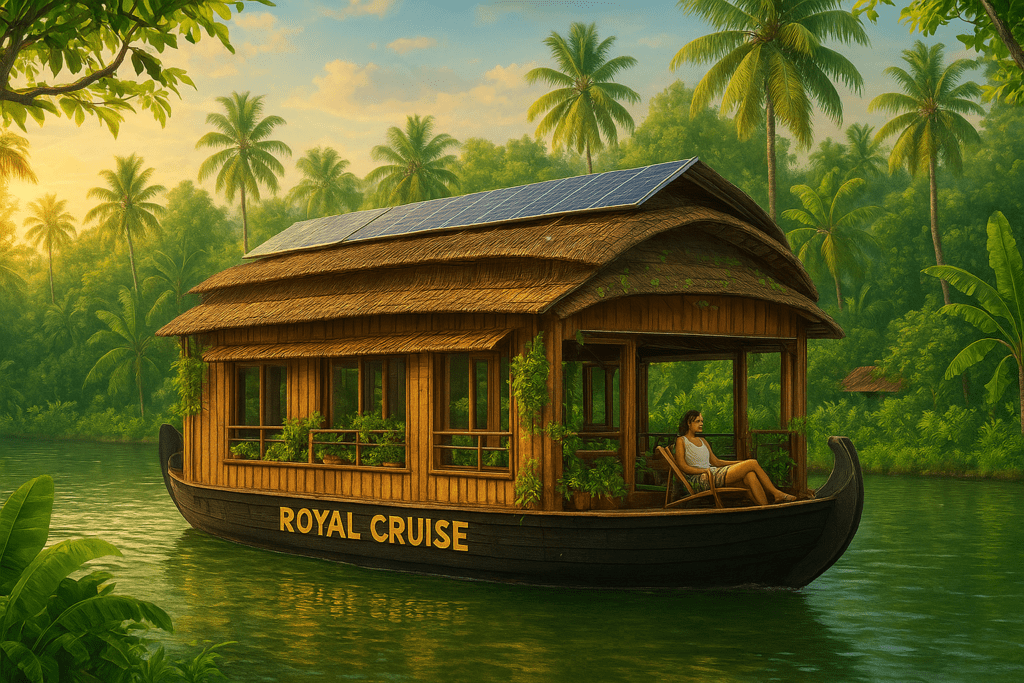Table of Contents
- Introduction – Why Eco-Friendly Tourism Matters
- Houseboats and Kerala’s Backwater Ecosystem
- How Houseboats Contribute to Sustainable Travel
- Reduced Land Footprint
- Local Community Support
- Traditional Kerala Design
- Organic Food & Freshwater Practices
- Guest Role in Responsible Tourism
- The Future of Eco-Friendly Houseboats
- Conclusion
1. Introduction – The Need for Responsible Tourism
Tourism is a powerful means of connecting people with new cultures and landscapes. Yet, it often leaves behind unintended consequences—overcrowded destinations, environmental stress, and cultural dilution. As global awareness about climate change and conservation grows, eco-friendly tourism has become more than a trend; it is a responsibility.
In Kerala, travelers are blessed with a unique opportunity to explore nature through the calm waters of Ashtamudi Lake in Kollam. Floating accommodations like JK Royal Cruise provide an intimate experience of the backwaters while embracing practices that respect the environment. More than just a leisure trip, it is a model of how tourism can be sustainable without compromising on comfort.
2. Backwaters of Kerala: A Fragile Paradise
The charm of Kerala’s backwaters lies in their stillness. Coconut groves leaning into the water, fishermen casting their nets at dawn, and flocks of migratory birds all come together to create a scene straight out of a painting.
But this paradise is also fragile. Ashtamudi Lake, Munroe Island, and Sambranikodi Island form an interconnected ecosystem that needs careful protection. Too much construction or careless tourism could disturb its delicate balance. That is where backwater cruises step in—offering a way to experience this beauty without leaving a heavy footprint.
3. Sustainable Features of Backwater Cruises
🌏 Minimal Land Use
Unlike hotels or resorts that require large amounts of land for construction, houseboats float on water and minimize physical impact on land. This helps preserve the greenery and ecosystem around the lake.
👨👩👧 Local Community Support
A trip on these cruises directly benefits people living in the region. The crew, cooks, and guides are often from nearby villages. Many families supply fresh fish, vegetables, and coir products to travelers, ensuring that income stays within the local economy rather than flowing away to large corporations.
Choosing operators such as JK Royal Cruise ensures that your travel supports the livelihoods of local families and preserves Kerala’s authentic culture
🏠 Traditional Design & Craftsmanship
Kerala’s floating stays are often inspired by Kettuvallams—traditional boats tied together with coir ropes and made from bamboo and wood. Even today, many artisans use age-old techniques to build and maintain them. This not only reduces dependence on modern synthetic materials but also keeps alive a cultural heritage that is centuries old.
🥘Fresh, Local Food Practices
Guests are often served meals prepared with locally grown produce. Fish is caught straight from the lake, vegetables are sourced from farmers nearby, and spices reflect Kerala’s rich culinary identity. Waste management systems and controlled freshwater use ensure that the lake remains unpolluted. Dining here becomes more than a meal—it’s a connection to the land and its people.
4.How Travelers Can Support Eco-Friendly Tourism
Sustainability is not just the operator’s duty; it also depends on how visitors behave. Guests can make their stay more meaningful by:
- Carrying reusable bottles instead of disposable plastics.
- Conserving electricity and water during their trip.
- Choosing eco-certified operators who invest in green technology.
- Respecting the quiet charm of the lake and avoiding loud activities.
- Purchasing local handicrafts and products to support the community.
Small actions by every traveler add up to a significant impact, making tourism truly responsible.tourism.
5. Innovations for a Greener Future
The future of backwater tourism is heading toward greener technology. Many modern cruises are now equipped with solar panels, bio-toilets, and waste recycling systems. Some operators are even experimenting with hybrid engines that reduce fuel emissions. These innovations show that luxury and responsibility can coexist.
Equally important is awareness among travelers. More people are choosing eco-conscious stays, and this demand pushes operators to improve their practices. When visitors ask questions about sustainability before booking, they encourage an entire industry to shift toward greener standards.
6. Conclusion
Exploring Ashtamudi Lake is more than a scenic holiday; it is a chance to see how tourism and nature can live in harmony. Floating stays here represent a thoughtful balance between comfort and conservation, blending Kerala’s cultural heritage with modern eco-friendly practices.
By choosing responsible travel options, supporting local communities, and being mindful guests, travelers ensure that the shimmering waters of Ashtamudi, the narrow canals of Munroe Island, and the serene shores of Sambranikodi remain pristine for generations to come.
When you step aboard JK Royal Cruise, you are not just taking a journey—you are becoming part of a movement that celebrates the earth while enjoying its beauty.
For booking Contact JK royal cruise team


